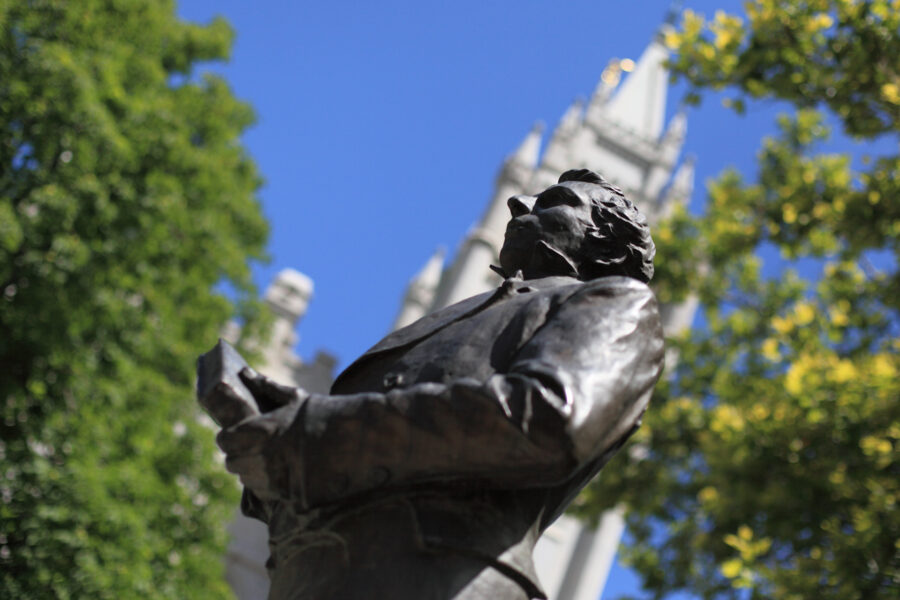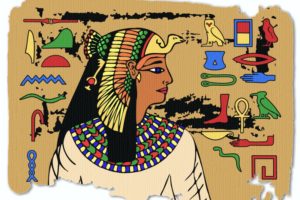In my various dialogues with Mormon missionaries and local leaders of the LDS church (all whom I respect and consider friends), I inevitably bring up something that my LDS counterparts label anti-Mormon. The term is usually given after I have raised some information about Joseph Smith or LDS church history that my friends find so disturbing, they immediately relegate it to being a half truth or a lie, and they assume I’ve found the information on some mean-spirited website.
And certainly there are thousands of ill-informed websites mixing truth with misperception and even outright distortions of the LDS faith and its history. However, there are thousands of these truth-twisting sites that confront all religious and non-religious claims. And conversely, there are reputable sites with reliable information to challenge every worldview. So why has the entire LDS church culture gravitated toward this denunciatory phrase, “anti-Mormon,” lumping all criticism—even good criticism—into the same pot?
I remember the first few times I heard the “anti-Mormon” phrase attached to something I said, and how strange it sounded to my ears. I had done good research, and was genuinely interested in hearing either a response to the issue, or a promise to look into it. When my question was discarded by the anti-Mormon phrase, I felt almost belittled. As if I’d been wrong in raising such a horrible topic (with the implication that it was certainly a false claim about their history). It seemed my friends saw the world as either for Mormonism, or “anti-Mormon.” It also felt like an uncharitable defensive wall had just been thrown in front of our relationship. This go-to phrase was meant to kill my inquiry without ever addressing it. After several of these experiences, I’ve come to expect my LDS friends to be in, what I would call, a protective bubble constructed of an “us vs. them” mentality, possibly to spare their church from the criticism of the outside world. My friends were able to write off my questions, concluding their origins to be false—not based on knowledge acquired through wrestling with the claim—only based on their own absolute certainty. But this reveals a very insular worldview.
The use of the term “anti-Mormon” in the mouth of a well meaning LDS friend is only an indicator of a larger problem within the Mormon church. All this friend has done is imbibe their church culture, but what about that LDS church culture itself? Where does this mindset come from?
Here is where I think the evidence leads. In many sincere and fruitful discussions with Mormons, I’m constantly made aware of how little knowledge they have of their own history, and a lack of awareness of the very real issues that are keeping me, and others like me, from making Mormonism our own faith. Whatever your worldview, if you care about changing another person’s mind on truth, you must earnestly tackle the barriers separating them from your worldview and what you believe to be true. But this can be dangerous. Because in doing so, your questioner might raise problems within your own belief system that you have not tackled. And it is possible that it will be you, and not them, who change their beliefs. But our goal should never be to remain in our beliefs. If that were the goal, no one could ever leave false belief behind. Our goal should always be to follow truth where it leads. And here is the crux of why I see such a widespread use of the term “anti-Mormon” within the LDS church.
It is there to prevent the average Latter Day Saint from delving into difficult questions.
Elder Boyd K. Packer (a member of the Quorum of the Twelve Apostles) said the following to LDS educators at Brigham Young University:
“There is a temptation for the writer or the teacher of Church history to want to tell everything, whether it is worthy or faith promoting or not. Some things that are true are not very useful [ . . . ] The writer or teacher who has an exaggerated loyalty to the theory that everything must be told is laying a foundation for his own judgment.”
Having leaders in the LDS church who share Elder Packer’s determination to spare their church members from history that is not “faith promoting” and of that which is “true, but not very useful” is, I think, at the root of the “anti-Mormon” claim. This safety net has trickled down to the average Mormon believer. This is unfortunate. It puts a very negative tone on what could be fruitful interaction. In my case, I sincerely want to explore if the Mormon church is true, but if things have to be hidden from me for it to be more attractive, this is ultimately deceptive (even if well intended). I don’t think it’s fair to the Mormon missionaries sent out by the church who are unaware of the difficulties, and taught only a white washed, faith promoting history.
Beyond the lack of transparency regarding the issue and the resultant term “anti-Mormon” there is a logical problem one should raise with the missionaries who use it, and it begins like this: If someone is a critic of atheism, does that make them anti-atheist? Or if someone is a critic of Islam, are they anti-muslim? Is that not an unhelpful label? This definition says to me: “You are against me if you challenge my faith.” But are there not thousands of Mormon missionaries across the globe essentially challenging people’s faith. When they arrive at a Methodists door, are they “anti-Methodist” when they teach that Methodism is part of an apostatized church? Perhaps the missionaries go into some historical reasons for seeing the “original Apostolic church” falling into apostasy over time, and how when Joseph Smith prayed for God to show him the true church, God told Joseph, that none of the churches were true and that “all their creeds were an abomination.” So are the Mormon missionaries anti-Methodist (or anti fill-in-the-blank denomination) when they make such statements?
As Apostle Paul once said, “By no means!”
A Mormon, if he has been convinced of this truth, should share this truth lovingly (as they do) and challenge the Methodist to rethink some of the particulars of his faith. Likewise, when someone brings up a historical issue challenging the LDS faith, instead of writing it off as anti-Mormon, they should investigate. If the historical claim brought up is false, or misunderstood, then the Mormon, by earnestly tackling the issue that was raised, is removing barriers to a persons potential conversion to the LDS faith.
And here I think the Christian church at large (or a person of any worldview) can take something away here. We must be careful not to step into the trap of “us vs. them” thinking, or the devastating certitude of unreflective belief. It is only through investigating challenges that you can become truly confident in your faith. An unhealthy confidence is one that removes itself from truth-correction.
As I always tell my Mormon friends (or any friend from outside my Christian faith), I am a Christian because I find it (quite happily!) to be true. Or another, more edgy way of putting it might be, I am a Christian because it requires the least amount of faith to believe. (Don’t misconstrue this to mean I don’t value faith. Faith is central to all belief, even Naturalism and Scientism). And I always want to add that I am not unchangeable. I will earnestly consider your worldview, but let’s walk together, you and I, moving towards truth together, and if that means me moving in your direction, or you moving in my direction, we shouldn’t ever fear a move toward truth over the comfort and security of our current worldview.
Truth is not to be hidden or feared, it is to be embraced.






16 Comments
Leave your reply.